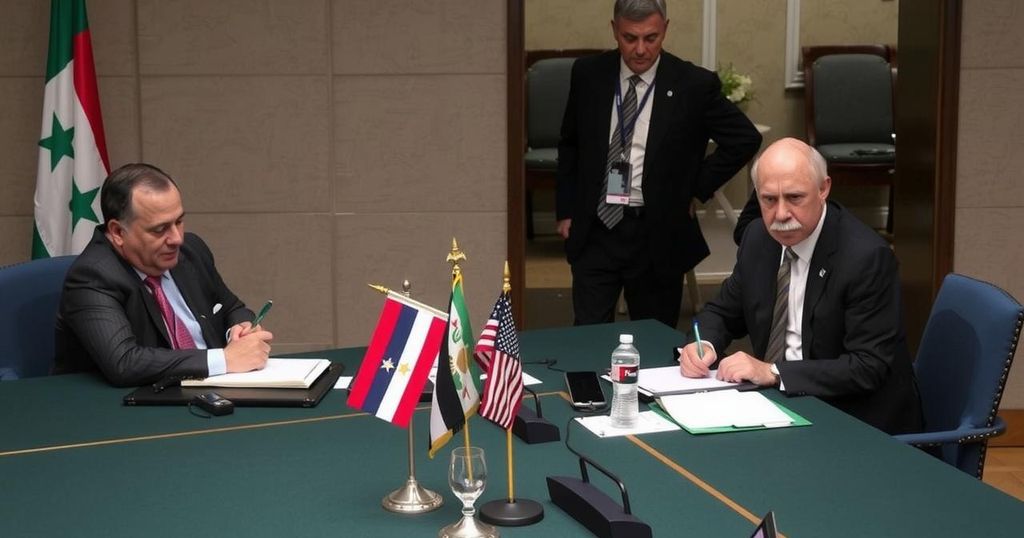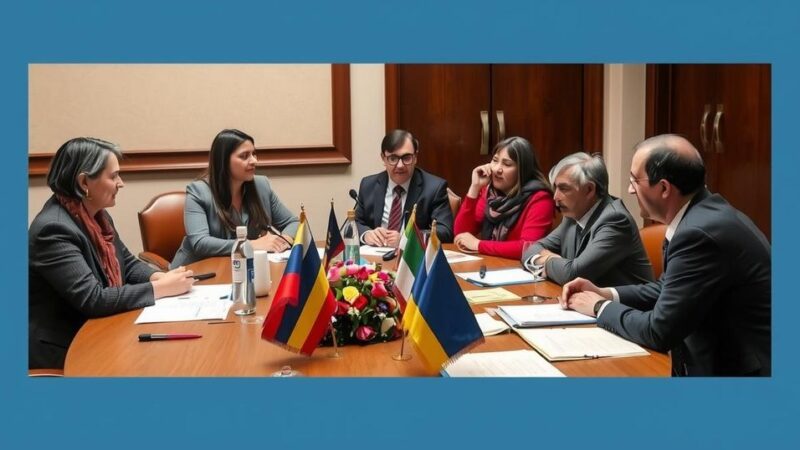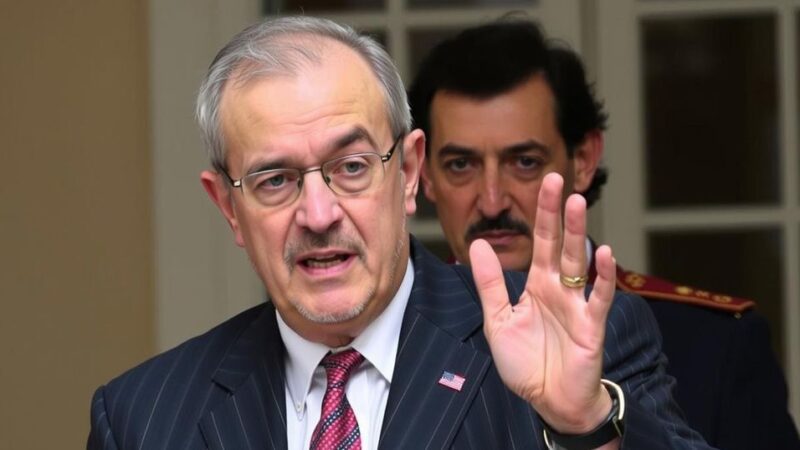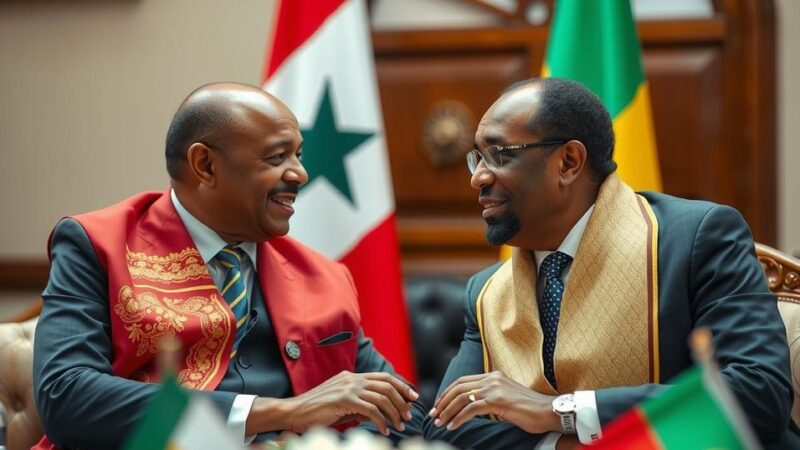U.S., Turkish, and Arab officials convened in Jordan to support a peaceful transition in Syria, emphasizing the need for an inclusive government. Key discussions involved direct communication with the rebel group HTS and concerns regarding regional stability. The absence of Syrian representation and the ongoing influence of Iran and Russia vividly illustrate the complexities of establishing a cohesive and functional governance in Syria.
Recent discussions held in Aqaba, Jordan, among officials from the United States, Turkey, and several Arab nations resulted in a collective commitment to support a peaceful transition process in Syria. During a press conference, Jordanian Foreign Minister Ayman Safadi emphasized the importance of avoiding chaos in the region, reflecting shared sentiments among the participating nations. U.S. Secretary of State Antony Blinken confirmed that the U.S. had engaged directly with the rebel group Hayat Tahrir al-Sham (HTS), which played a crucial role in the downfall of President Bashar al-Assad’s government.
A joint statement from the meeting called for the establishment of an inclusive Syrian government that respects minority rights and refrains from providing sanctuary to terrorist organizations. The talks highlighted the urgent necessity for a governance structure that accurately represents the diverse population of Syria. Iraqi Foreign Minister Fuad Hussein voiced regional apprehensions regarding Syria’s stability and expressed a collective desire to prevent a scenario akin to the chaos witnessed in Libya after the ousting of Colonel Gaddafi.
Turkish Foreign Minister Hakan Fidan addressed the need to preserve and reform existing Syrian institutions, stating, “Never allow terrorism to take advantage of the transition period. And we have to coordinate our efforts and learn from the mistakes of the past.” Despite the HTS expressing intentions for an inclusive governance approach, skepticism remains due to its violent history. Mr. Blinken reiterated the U.S.’s ongoing communication with HTS, particularly concerning missing American journalist Austin Tice, despite the group’s current designation as a terrorist organization.
It is notable that Syrian representation was absent from the talks, along with key players such as Iran and Russia, who previously supported Assad’s regime. The discussions underscored the necessity for a unified Syrian identity that transcends sectarian divides. The future of Syria appears to rely heavily not only on internal cohesion but also on the collaborative efforts of external powers, should there be any hope for the Syrian populace to benefit from the recent experiences of freedom.
The recent diplomatic engagement between the U.S., Turkey, and Arab states concerning Syria arises from ongoing conflicts and governance challenges in the region. Following years of civil strife, the need for a transition to a stable and representative government has become paramount. The involvement of multiple stakeholders and their commitment to prevent further chaos illustrates the complexity of Syria’s political landscape, shaped by both local dynamics and international interests. This meeting reflects a cautious approach toward establishing a more inclusive governance model, recognizing the latent historical tensions and the risks posed by extremist groups. The absence of a Syrian presence at these talks, along with the non-participation of Iran and Russia, highlights the geopolitical complexities that have long plagued Syrian politics. The current climate necessitates cooperation across various factions to achieve a sustainable solution that genuinely embodies the desires of the Syrian people.
In conclusion, the recent discussions in Jordan mark a significant step towards fostering a peaceful transition in Syria, emphasizing the need for an inclusive government that adheres to the rights of all minorities while effectively combatting terrorism. The collaboration between regional powers reflects a shared resolve to prevent chaos, akin to that experienced in Libya. However, skepticism remains regarding the commitment of groups like HTS to uphold a progressive governance framework, underscoring the challenges that lie ahead for Syria’s future stability and unity.
Original Source: www.bbc.co.uk






